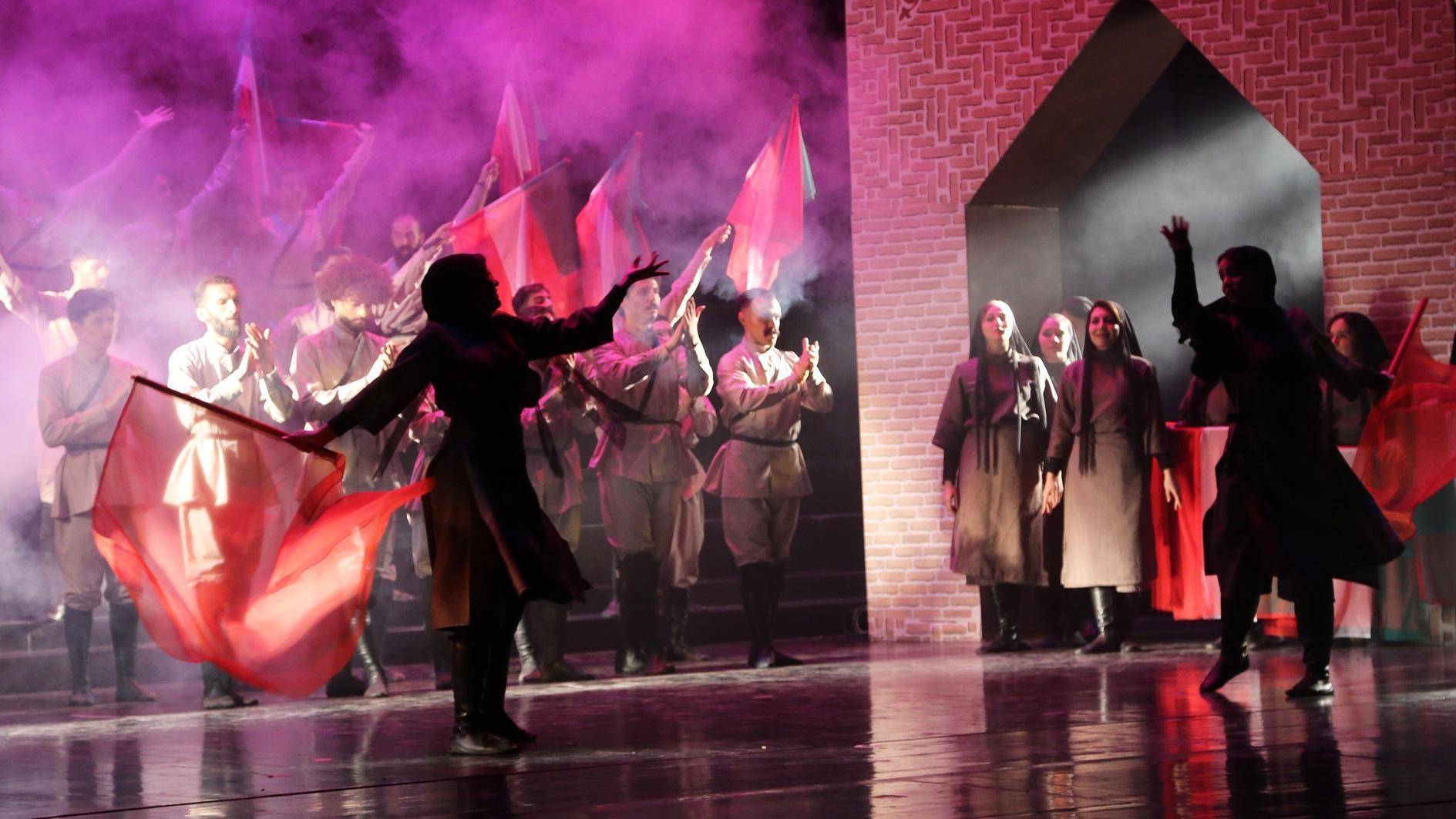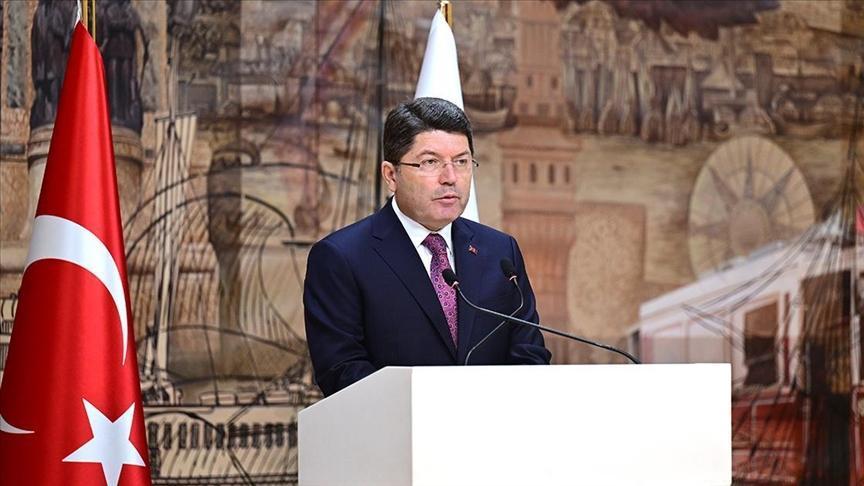Turkish language theater draws audiences in Iran
TEHRAN

The play "Settarhan Serdar-ı Milli," performed in Turkish in Iran, has attracted great interest in Tehran after receiving widespread acclaim in Tabriz. The play sheds light on the country’s cultural and historical heritage.
Focusing on the life, freedom struggle and sacrifices of folk hero Settarhan, the play has drawn attention not only for its content but also for being performed in Turkish.
Beyond being a theatrical production, "Settarhan Serdar-ı Milli" highlights Iran’s cultural diversity and historical legacy. The play first premiered in Tabriz, where it was met with enthusiastic audiences. During its 20-day run in Tabriz, the production played to packed houses, with approximately 25,000 people attending.
Following its success in Tabriz, the play began performances in Tehran as part of the Fajr International Theater Festival. The premiere in the capital also saw great interest from theater enthusiasts. The play was warmly received by both Turkish-speaking and Persian-speaking audiences in Tehran.
The performances in Tehran demonstrated the broad reach of Turkish theater in Iran’s cultural capital. Filling theater halls in the capital, the production served as a cultural bridge, offering art lovers the opportunity to experience the story of a historical figure in Turkish.
The play narrates Settarhan’s resistance movement in Tabriz, the people’s yearning for freedom, and the struggles endured for this cause. At the same time, it portrays the political and social conditions of the period, showing how Settarhan became a symbol with the support of the people and the lasting impact of his efforts.
Speaking to state-run Anadolu Agency Yakup Sadık Cemali, the writer and director of "Settarhan Serdar-ı Milli," said, “This play tells the life story and struggle against oppression of our highly significant and respected leader known as Settarhan.”
Cemali shared that the production involved 180 people, including 96 actors, and took seven months of rehearsals to prepare. “It was performed 22 times in the Grand Hall in Tabriz. Approximately 25,000 people watched it, and it is being staged in Tehran for the first time. The play is receiving tremendous interest because of the special importance of the character. Currently, all tickets are sold out. While the play was very well-received by Iranians from the Azerbaijan region, it also garnered significant interest from Persian audiences,” Cemali said.
Cemali described Settarhan as a hero who fought against the Qajar dynasty, which opposed constitutionalism. Unlike many other figures of the time, Settarhan did not give up his struggle despite the challenges he faced, which is why Cemali felt compelled to write a play about him.
‘We want to perform in Türkiye and Azerbaijan'
Expressing a desire to stage the play in Türkiye and Azerbaijan, Cemali said, “The year 2025 has been declared the Iran-Türkiye Joint Cultural Year. Within this framework, we hope to perform this play in Türkiye and Azerbaijan with the support of Iran’s Cultural Attaché. It could attract significant interest there as well, as there would be no language barrier. If all goes well, we will perform the play there too.”
Muhammed Zirek, the actor portraying Settarhan, expressed his great honor in playing the role, saying, “I lost 13 kilograms to portray Settarhan. Although Settarhan was illiterate, he had military knowledge, honor and dignity. He was so honorable that no one disobeyed him; everyone trusted him.”
Zirek stated that the play received great attention in Tabriz and added, “Here in Tehran, we also participated in the Fajr Theater Festival, and once again, people did not leave us alone. For this, I am deeply grateful to them and bow to them in respect.”
Noting that staging the play in Türkiye and Azerbaijan would be a source of pride for them, Zirek said, “Turks are one, not separate. Tabriz, Baku, Urmia, Ankara — there is no difference. Performing the play there would also be an honor for us.”
Who is Settarhan?
Settarhan (1868–1914) is recognized as a folk hero and freedom fighter who holds an important place in Iran’s modern history. Born in Iran’s Azerbaijan region, Settarhan emerged as a prominent leader during the Constitutional Revolution, which sought to secure the people’s political rights in the early 20th century.
Best known for the resistance he led in Tabriz, Settarhan organized a major uprising in 1908 against forces sent by Iran’s then-monarch, Mohammad Ali Shah, to suppress the constitutionalist movement. Under Settarhan’s leadership, the people of Tabriz defended the city and fought to protect their constitutional rights.
Settarhan’s struggle resonated throughout Iran, making him a symbol of the fight for freedom and the rights of the people. His story continues to be passed down through generations via plays, books and films.
















